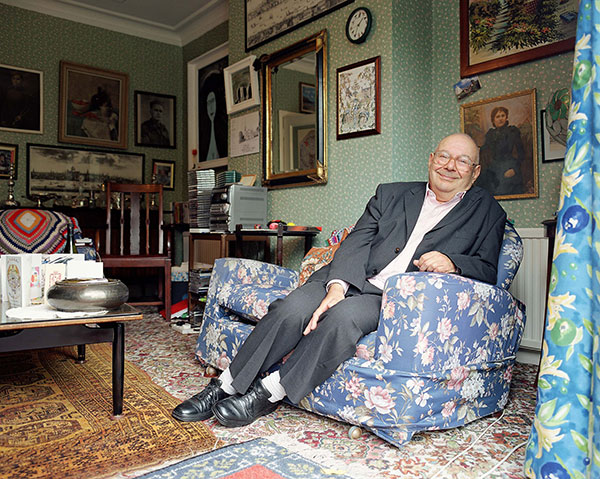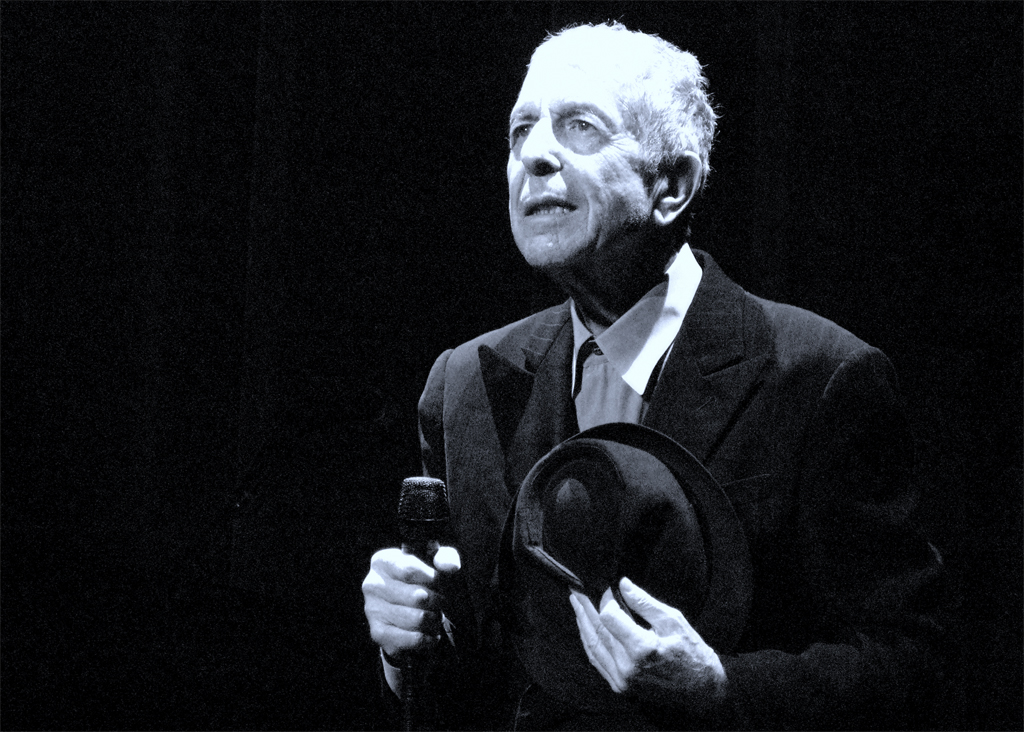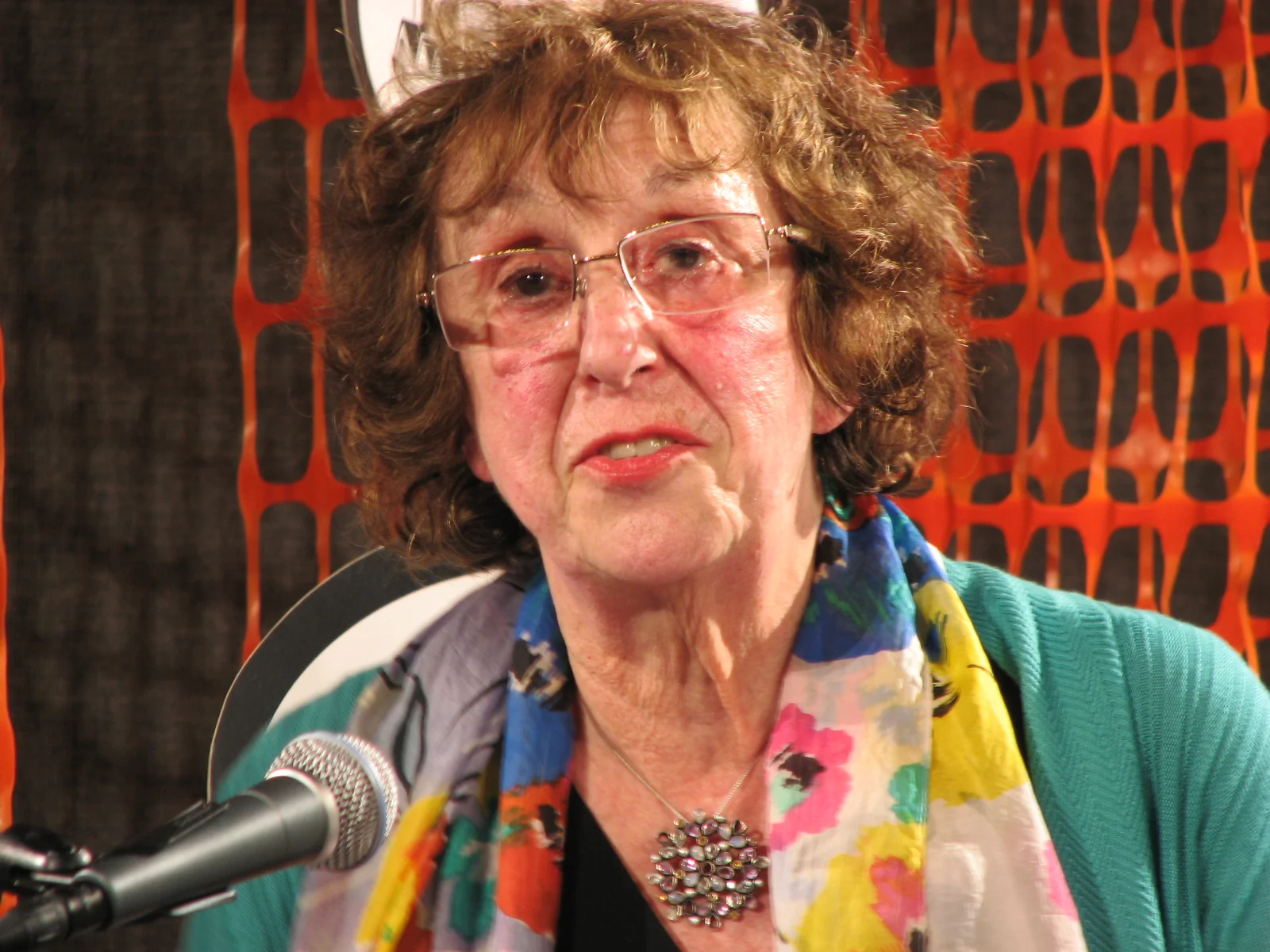A statement released by Peter Green's family said that he passed away "peacefully in his sleep" on Saturday 25 July in Essex. The musician was famed for founding the international rock band Fleetwood Mac. Born Peter Allen Greenbaum in 1946, the influential guitarist and singer…
Jerry Herman 1931-2019
Sir Jonathan Miller 1934-2019
Poet Elaine Feinstein dies age 88
Author Judith Kerr dies age 95
Denis Norden 1922-2018
Rabbi Lionel Blue has died aged 86 – Judi Herman remembers two encounters with him in the last months of his life
 There will be beautiful, insightful and loving obituaries about Rabbi Lionel Blue, the much loved minister, teacher and, famously, speaker on BBC Radio 4's Thought for the Day, from those who knew and loved him well over many years. He was known for his jokes, his insights and his honesty about his homosexuality. Sadly he passed away on Monday 19 December, aged 86. I myself encountered Lionel only at the very end of his life, when he was living in a home in Golders Green, coping with the ravages of Parkinson’s Disease, the cruel condition that rendered it so hard for this extraordinary communicator to do just that, for it made not only movement but also speaking extraordinarily difficult.
There will be beautiful, insightful and loving obituaries about Rabbi Lionel Blue, the much loved minister, teacher and, famously, speaker on BBC Radio 4's Thought for the Day, from those who knew and loved him well over many years. He was known for his jokes, his insights and his honesty about his homosexuality. Sadly he passed away on Monday 19 December, aged 86. I myself encountered Lionel only at the very end of his life, when he was living in a home in Golders Green, coping with the ravages of Parkinson’s Disease, the cruel condition that rendered it so hard for this extraordinary communicator to do just that, for it made not only movement but also speaking extraordinarily difficult.
Last summer I was asked to write a light-hearted tribute to the Leo Baeck College for training Liberal and Reform Rabbis as it turned 60 this year, to be performed at the Liberal Jewish Biennial Conference. I was sent to record Lionel telling one of his trade mark jokes and with extreme effort and gumption he did just that. He also had a great deal to say about his time at the college, of which he was one of the very first two students and that had pride of place in the article I wrote about Leo Baeck College in the October 2016 issue of Jewish Renaissance.
But afterwards he continued to chat to me and I continued to record what he said as I leant close, straining to catch his words. He spoke of being a pioneer, bringing word from the frontier of old age. “My great problems,” he said, “are not the problems of the past but of the future. My problem and the problem of my generation is we are living longer. In my childhood my parents died when they were about 60. Now [people] carry on till they are 80 or 90 and you need a whole new interpretation of Jewish life for them because otherwise you just go round and round and round the same bush. That doesn’t help you very much. For example, I have to ask myself what is the purpose of life for me in an old-age home? That’s what I’m trying to work out here now. I’ve worked out parts of it.”
He paused and I asked, rather simplistically and fatuously, I admit, whether he thought he had something to add to Jewish learning on extended old age now.
“Not to add,” he replied, gently humouring me. “First of all I’d want to know what it is to be an old chap.”
Will you share it with us when you know?
“Of course!” Poignantly he continued: “But the point is you have to learn what it’s like to feel the loneliness of old age even with all the nice pressies you get. What’s the purpose of lingering around being an old person? It’s not easy to find out, but I think that’s what we’ve got to do.”
I continued with a whole lot of guff along the lines of, "Maybe you are like the two spies who went into the Land – you’re going before us and you’re going to give us a message that will make it more understandable.”
Softly sending me up again he replied: “The message is you tend to have too many cakes!”
That wasn’t the last time I visited Lionel. He’d told me during that recording about his love of dogs and how he missed being able to stroke and pet them. I wondered whether I might bring my dog, Bertie the Bedlington terrier to meet him. Reminded of my idea when I saw Lionel again, a guest of honour at the Service of Celebration for Leo Baeck College’s 60th anniversary, I asked if he’d like to meet Bertie and when he said yes, I asked the kind folk who ran the home whether Bertie might visit. To my delight and Lionel’s – the answer was "why not!"
So last month one very excited Bedlington had to learn to restrain himself as he jumped enthusiastically at Lionel and enjoyed being petted by a tentative hand. Bertie is probably not quite up to qualifying as a Pets as Therapy dog, but I like to think he felt the greatness and gentleness of the man in the chair at whose feet he eventually fell asleep. Now Lionel is free of the loneliness, and the pain and frustration he seemed to bear with such grace, outwardly at least. z”l (zichrono livrakha – may his memory be a blessing).
By Judi Herman
Leonard Cohen: A personal response from JR's arts editor Judi Herman
 This is not where you will read erudite analysis or an account of a life, or even of the work. I am simply asking myself and others like me why we have been so profoundly affected by Leonard Cohen's words, music and life.
This is not where you will read erudite analysis or an account of a life, or even of the work. I am simply asking myself and others like me why we have been so profoundly affected by Leonard Cohen's words, music and life.
For a time now, aware that the man who told us all "I'm your man" was an octogenarian, I have been confiding that I hoped he would live to a great age because the world would be a poorer place without him. It was a better place with him in it. I think I feel this way because of the arc of his life, with its many pathways, both sacred and profane, as shared through his music, confided to me and so many others through his gorgeous, elegant poetry and lyrics.
The devout Jew engaged in an honest "I-Thou", one-to-one relationship with the God with whom he wrestles and may, like me, doubt, is also the apparently cheerful, though silent Buddhist. He was also the sublime lover, the dirty lover and the unfaithful lover; but a lover who was always as honest with his earthly lovers as with his God. I never met him but I'm convinced that he would have been the best of companions – despite the fug of tobacco smoke.
Returning to his Judaism, famously self-evident in Hallelujah and If It Be Thy Will, look closer and you will see how often he quotes not just from the scriptures (Old and New Testament) but also from prayers and writings central to the faith into which he was born. Who by Fire picks up powerfully, almost playfully – even blasphemously some might say – on “U-n’ tanneh tokef”, “Let us proclaim the holiness of this day”, an ancient liturgical poem describing the Day of Judgement, an important part of the High Holy Days Liturgy recited at Yom Kippur, the Day of Atonement, when God decides “who shall live and who shall die … who shall perish by water and who by fire…”.
And quoting the opening words of the Kaddish (prayer of mourning) in the title track of You Want it Darker, the album released shortly before his death, “Magnified, sanctified, be thy holy name”, is as much a part of his message that he is ready for imminent death as the words he repeats as a refrain, “Hineini, hineini I’m ready, my lord”. These words, which echo through the Torah from Genesis to Isaiah, are picked up by the cantor at his Montreal synagogue to end the song with a heart-stopping echo. How like Cohen not to go without leaving one last great legacy.
I hope to go into this in more detail in the next issue of Jewish Renaissance, comparing Cohen's lyrics with Nobel Laureate Dylan. But for now, rest in peace Leonard Cohen; z”l (zichrono livrakha – may his memory be a blessing)". You may have reached the age of 82, but for me, as for so many more, your death was untimely, though I'm sure you met it with your usual great grace, ready for this last new experience that you have written about with such beauty.
Canadian singer-songwriter Leonard Cohen has died, age 82
 On Monday 7 November, one of music’s most eloquent and able songwriters passed away. Leonard Cohen was 82 when he died peacefully at his home in southern California earlier this week. His son Adam said touchingly in an interview with Rolling Stone, “My father passed away peacefully at his home in Los Angeles with the knowledge that he had completed what he felt was one of his greatest records. He was writing up until his last moments with his unique brand of humour."
On Monday 7 November, one of music’s most eloquent and able songwriters passed away. Leonard Cohen was 82 when he died peacefully at his home in southern California earlier this week. His son Adam said touchingly in an interview with Rolling Stone, “My father passed away peacefully at his home in Los Angeles with the knowledge that he had completed what he felt was one of his greatest records. He was writing up until his last moments with his unique brand of humour."
The record Adam is speaking about is You Want it Darker, which was recently released (21 Oct) and effused the sincere, gravelly tones and orchestral movements he was so well known for.
Born in Westmount, Quebec on 21 September 1934, Cohen grew up in a middle-class Jewish family. Marsha Klonitsky, his mother, was the daughter of a rabbi, while his father, Nathan Cohen, had Polish heritage – his father Lyon Cohen having emigrated from Poland in 1871 and later founding the Canadian Jewish Congress.
While at high school Cohen picked up an appreciation of poetry and by age 20 had published his first poems in a magazine called CIV/n. It wasn’t until the 60s, however, that Cohen began life as a musician. In 1967 he moved to New York, befriended Andy Warhol and penned the song Suzanne, which was to be his first successful foray into the world of music.
Despite a prolific, 60-year career, Cohen never charted highly in the mainstream. His highest ranking song in Canada, Closing Time, reached Number Five, while in the UK it was only the reissue of Hallelujah that ever charted at position 36.
Originally released in 1984, Hallelujah has become the song Cohen is most renowned for. The singer never had much success with it himself, but it was remarkably covered over 300 times, most notably by the late US singer Jeff Buckley, who scored a Number One hit with it.
As well as music, Cohen was also known as an accomplished author. Over the years he published two novels – The Favourite Game (1963) and Beautiful Losers (1966) – and 13 anthologies of poetry.
Eleven albums down the line, in 2005, Cohen was in the public eye for something other than his art after his close friend and manager Kelly Lynch was exposed for misappropriating over $5m from Cohen’s accounts. This hefty loss formed a big part of Cohen’s reasons for writing new music and touring again.
Earlier this year Cohen’s former lover Marianne Ihlen died. She was the Marianne of the song So Long, Marianne, which Cohen wrote about her when the pair dated and lived in Hydra, Greece for much of the 60s. Shortly before Marianne passed Cohen penned her a heartfelt letter saying: “Marianne it’s come to this time when we are really so old and our bodies are falling apart and I think I will follow you very soon. Know that I am so close behind you that if you stretch out your hand, I think you can reach mine.”
The world has lost a truly talented spirit that will live on in Leonard Cohen’s songs, poetry and legacy.
By Danielle Goldstein
Arnold Wesker tribute: The playwright still packed them in at the Royal Court in an affectionate and celebratory look at his life
 “He shone with the sun”, lilted singer Rosie Archer in a soaring paean that took place as part of many poignant moments during an afternoon of tributes to the playwright Arnold Wesker, who died age 83 on 12 April 2016.
“He shone with the sun”, lilted singer Rosie Archer in a soaring paean that took place as part of many poignant moments during an afternoon of tributes to the playwright Arnold Wesker, who died age 83 on 12 April 2016.
Held at the Royal Court Theatre, Wesker's spiritual home despite the theatre having turned down Chicken Soup with Barley (it premiered in 1958 at Coventry’s Belgrade Theatre), the evening was filled with warm memories of the late playwright from luminaries across the arts world.
Mike Leigh spoke of his delight in his teens at discovering this East End working-class dramatist. “What a hero he was. We sought out his plays and read them avidly,” recalled Leigh, reading from a piece based on an article first published in the July 2016 issue of Jewish Renaissance. Later in the Royal Court’s bar, Leigh told me that he had been approached to participate in the event after Wesker’s wife Dusty had shown the organisers the piece.
David Edgar spoke of Wesker’s groundbreaking representation of “political disillusion”; director Fiona Laird remembered her surprise at finding the playwright “charming,” instead of the curmudgeon she had been led to expect. A frail looking Bernard Kops, one of the last of those ‘angry young men’, recalled Wesker’s desire to broaden the reach of culture with his Centre 42 project.
There were some great performances too: Samantha Spiro’s delivery of Sarah Kahn’s final speech (she played Kahn in the Royal Court’s revival of Chicken Soup in 2011) brought tears to my eyes, although puzzlingly she omitted the ultimate rousing imperative, “You've got to care, you've got to care or you'll die!” Ian McKellen performed an excerpt of Chips with Everything with gusto, and Henry Goodman made a mischievous Shylock in a speech from the 1976 play of the same name. Finally, Jessica Raine, who played Beatie in the Donmar Warehouse’s 2014 production of Roots, movingly reprised that character's astonishing final speech.
And there were surprises: who knew Wesker had written lyrics for a Eurovision Song Contest entry? Sadly, Jonathan King rejected Shone With the Sun as “too classical”, otherwise Britain’s Eurovision history might have told a different story. He had been a talented artist too, said set-designer Pamela Howard, who presented several of his fine ink drawings.
As the audience left, speakers played Aaron Copeland’s Fanfare for the Common Man, a favourite with the playwright, and a reminder of the compassion at the heart of Wesker’s own art.
By Rebecca Taylor
CLICK HERE to read Mike Leigh's tribute to Sir Arnold Wesker from our July 2016 issue







